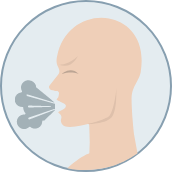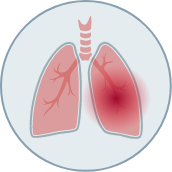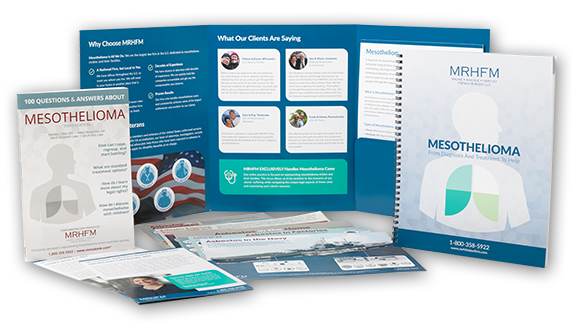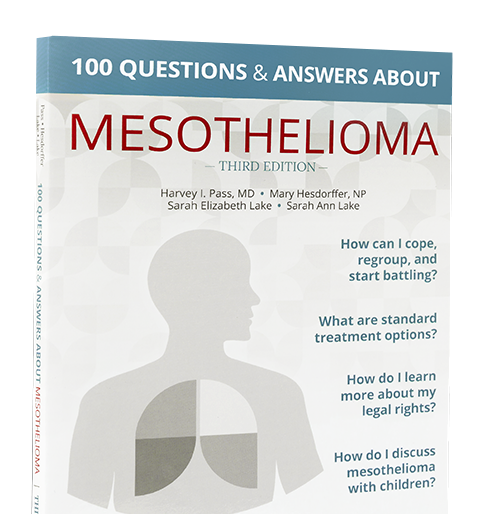What is Pleural Effusion?
Identified as an abnormal amount of fluid surrounding the lungs, a pleural effusion affects the thin membranes (the pleura) that allows the lungs to expand in the chest cavity when breathing.
Normally, the body maintains a small amount of fluid within the layers of the pleura that facilitates normal breathing patterns; however, when a pleural effusion is present, breathing may become difficult or troubled and recommended treatments depend upon the amount of fluid and the overall health of the infected.
Causes of Pleural Effusions
Many different health conditions may lead to or can cause a pleural effusion. Most common causes of pleural effusion include malignancy, pneumonia, congestive heart failure, or pulmonary embolism, as well as other traumas to the body. A pleural effusion may alter, reduce, or flatten the space in which the lungs are able to function normally and may indicate an underlying disease process.
of all Mesothelioma Cases Occur in the Pleura
(Pleural Mesothelioma)People
Develop Pleural Effusions in the U.S. Each Year!
Life Expectancy for Patients with Malignant Pleural Effusions (MPE)
Symptoms
While identification of the symptoms of pleural effusions is unique for each individual, and in some cases symptoms may not be present at all, common symptoms may include:

Impacted breathing / shortness of breath

Cough, frequently dry & non-productive

Chest Pains

Fever

Difficulty breathing while laying down

Habitual hiccups

Irregular breathing patterns
Treatments
When considering treating a pleural effusion, your health care provider may offer several approaches depending upon the underlying medical disorder. Symptomatic relief is possible during treatment plans that would drain the pleura. Medications, pleurodesis, surgery, or a combination treatment plan may be recommended by your doctor or health care provider.
Draining the Chest Cavity
A needle or small tube inserted into the chest to drain build up.
Pleurodesis
A procedure used to cause the layers of the pleura, the lining of the lung, to adhere together. A chemical or medication is inserted into the space between the two layers of the pleura causing inflammation that adheres the two layers together.
Surgery
Procedures such as a pleurectomy (removal of part of the lining of the lung) to help prevent the collection of fluid.
Pleural Effusions and Mesothelioma
Pleural effusions may be indicative of other medical disorders, including pleural mesothelioma. Pleural mesothelioma is a type of cancer caused by inhaling asbestos fibers. These fibers get lodged into the protective lining of the lungs (the pleura), causing genetic mutations in the surrounding cells. In some cases, this leads to pleural mesothelioma.
-
Sources
- WedMD.com, "What is Pleural Effusion?", WedMD Medical Reference, Reviewed January 6, 2019 (https://www.webmd.com/lung/pleural-effusion-symptoms-causes-treatments#1)
- MedlinePlus, "Pleural effusion", Medical Encyclopedia, Last updated October 2, 2019 (https://medlineplus.gov/ency/article/000086.htm)
- Medscape, "Pleural Effusion", Kamran Boka, MD, MS, Updated: Dec 28, 2018 (https://emedicine.medscape.com/article/299959-overview)
- US National Library of Medicine, "Malignant pleural mesothelioma presenting with remitting–relapsing pleural effusions: report of two cases", National Institute of Health, Published February 23, 2018 (https://www.ncbi.nlm.nih.gov/pmc/articles/PMC5824618/)
- Healthline, "Fluid in the Chest (Pleural Effision)", Written by April Kahn and Ana Gotter, Reviewed on April 6, 2018
- US National Library of Medicine, "Mortality of Hospitalized Patients with Pleural Effusions", National Institute of Health, Published May 1, 2014





